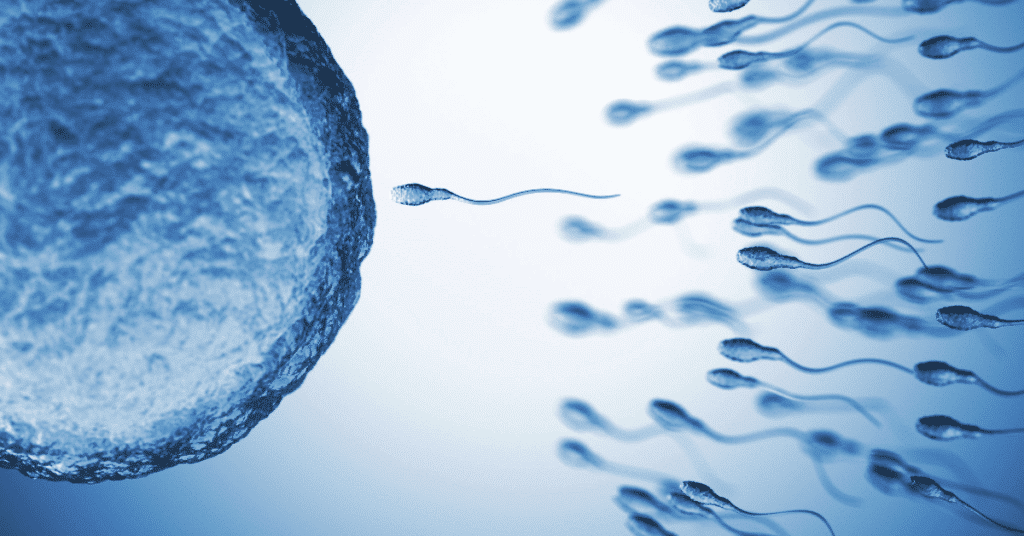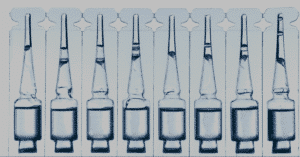
Have you been trying to conceive a child with your partner for over a year without success? If so, male infertility could be the cause. Male infertility is the inability of a man to impregnate a woman after one year of unprotected sex. It accounts for about 30% of all infertility cases. Reproductive medicine can help diagnose and treat male infertility by assessing sperm function. Women should also check their ovulation and fallopian tubes to ensure they are not contributing to the problem.
There are various causes of male infertility, including infections, injuries, and temperature changes that can affect fertility. Reproductive medicine offers a range of assisted reproductive techniques such as in vitro fertilization (IVF), intracytoplasmic sperm injection (ICSI), and intrauterine insemination (IUI) to help couples conceive. In some cases, blocked or damaged fallopian tubes can also be addressed with these treatments.
It is crucial to seek medical advice if you and your partner have been trying to conceive for over a year without success. A doctor can perform tests to determine the cause of infertility, including ovulation issues or low sperm counts, as well as examine the fallopian tubes for blockages. Based on the results, the doctor may recommend assisted reproductive techniques to increase the chances of conception.
If you want to learn more about male infertility and sperm counts, reputable websites such as the American Society for Reproductive Medicine and Mayo Clinic provide valuable information on this topic. Additionally, it is important to understand how fallopian tubes and ovulation can also play a role in fertility issues.
Don’t let low sperm counts and male infertility prevent you from starting or growing your family. Seek health information and medical help today to increase your chances of conceiving a child with assisted reproductive techniques, such as those that bypass blocked fallopian tubes.
Common Symptoms of Male Infertility
Azoospermia: The Absence of Sperm in Semen
Azoospermia is a common symptom of male infertility that can have serious implications for reproductive health. It refers to the absence of sperm in semen, and affects around 1% of the male population. This condition can be caused by various factors including hormonal imbalances, genetic abnormalities, and certain medications. In some cases, azoospermia may also be caused by blockages in the reproductive tract or damage to the testicles. If you are concerned about your fertility or would like more information on this topic, we recommend consulting with a healthcare professional or visiting the Mayo Clinic website. Additionally, it is important to note that azoospermia can impact a couple’s ability to conceive and carry a pregnancy to term, so seeking treatment and support from a medical provider is crucial.
There are two types of azoospermia: obstructive and non-obstructive. Obstructive azoospermia occurs when there is a blockage in the tubes that carry sperm from the testicles to the penis. Non-obstructive azoospermia occurs when there is an issue with sperm production in the testicles themselves, which can lead to infertility problems. It is important to note that unexplained infertility can also be a factor in male infertility, and seeking health information can help identify potential causes.
Low Sperm Count, Abnormal Shape or Movement
Other symptoms of male infertility, which can affect the health of both partners, include low sperm count, abnormal sperm shape or movement, and erectile dysfunction. According to Mayo Clinic, a low sperm count means that there are fewer than 15 million sperm per milliliter of semen, making it difficult for men to conceive naturally and for the womb to support a pregnancy. For more information on male infertility, consult with your healthcare provider or visit Mayo Clinic’s website.
Abnormalities in sperm shape or movement can also impact fertility and contribute to unexplained infertility. It is important for men to prioritize their health and seek information about potential issues with their sperm. For example, if a high percentage of a man’s sperm have an abnormal shape (known as teratozoospermia), they may not be able to swim properly or penetrate an egg for fertilization.
Erectile dysfunction (ED) can also be a symptom of male infertility and may indicate issues with sperm counts or overall health. ED is defined as difficulty achieving or maintaining an erection during sexual activity. While ED alone does not necessarily cause infertility, it can make it more difficult for couples to conceive naturally. Seeking information and advice from a healthcare provider can help address these concerns.
Asymptomatic Infertility
In some cases, male infertility may not present any noticeable symptoms at all. This makes it important for men to undergo regular fertility testing to obtain relevant information, especially if they have been trying to conceive for more than a year without success.

Seeking Medical Advice and Treatment
Seeking medical advice and treatment for male infertility symptoms can increase the chances of successful conception and pregnancy. Treatments may include medications to boost sperm production, surgery to correct blockages or other physical abnormalities, or assisted reproductive technologies such as in vitro fertilization (IVF).
It is important for men to speak with their healthcare provider about any concerns they may have regarding their fertility, especially if they are experiencing unexplained infertility. Early diagnosis and treatment can help improve outcomes and increase the chances of successful conception.
Understanding the Male Reproductive System
The Male Reproductive System
The male reproductive system is responsible for producing and transporting sperm to fertilize a female egg. It consists of several parts, including the testicles, vas deferens, epididymis, and scrotum. The testicles are two oval-shaped organs that produce and store sperm. They also produce testosterone, which is responsible for male sexual characteristics. However, fertility problems may arise if there are issues with sperm production or transport.
The vas deferens is a long tube that carries sperm from the testicles to the urethra. The epididymis is a coiled tube located behind each testicle where sperm mature and are stored until ejaculation. The scrotum is a sac-like structure that contains the testicles.
Sperm Production
Sperm production occurs in the seminiferous tubules within the testicles. These tubules contain specialized cells called spermatogonia that divide and differentiate into mature sperm cells through a process called spermatogenesis.
Spermatogenesis is regulated by hormones such as follicle-stimulating hormone (FSH) and luteinizing hormone (LH), which are produced by the pituitary gland in response to signals from the hypothalamus in the brain.
Sperm Function
Sperm function involves movement through the urogenital tract during sexual intercourse to reach the female genital tract for fertilization. During ejaculation, muscles in the vas deferens contract to propel sperm into the urethra, where it mixes with fluids from other glands to form semen.
Once inside a woman’s body, sperm must navigate through cervical mucus and make their way up into fallopian tubes where they can fertilize an egg if ovulation has occurred.

Causes of Infertility in Men
Infertility affects approximately 1 in 8 couples trying to conceive, with male factor infertility accounting for about 30% of cases. There are many possible causes of male infertility, including:
- Low sperm count: A low sperm count, also known as oligospermia, is a common cause of male infertility. It can be caused by a variety of factors, including hormonal imbalances, varicoceles (enlarged veins in the scrotum), infections, and exposure to toxins or radiation.
- Poor sperm motility: Sperm must be able to swim effectively through the female reproductive tract to reach the egg for fertilization. Poor sperm motility can be caused by genetic factors, hormonal imbalances, infection, or damage to the testicles.
- Abnormal sperm morphology: Normal sperm have a specific shape that allows them to move efficiently and penetrate an egg. Abnormalities in sperm shape and size can make it difficult for them to function properly.
- Retrograde ejaculation: Retrograde ejaculation occurs when semen is ejaculated into the bladder instead of out of the penis. This can be caused by certain medications or conditions that affect nerve function.
- Obstruction or blockage in the reproductive tract: Obstructions in the vas deferens or epididymis can prevent sperm from being ejaculated properly.
Genetics and Hormonal Issues: Understanding the Causes of Male Infertility
Male infertility, which affects millions of men worldwide, can be caused by a variety of factors. In some cases, genetics and hormonal issues can play a significant role in male infertility. Here we discuss some of the most common causes of male infertility related to genetics and hormones.
Hypogonadism: Low Testosterone Levels
Hypogonadism is a condition where the body doesn’t produce enough testosterone. This condition can lead to male infertility due to low levels of testosterone. Testosterone is essential for sperm production, so if there isn’t enough testosterone in the body, it can result in low sperm count or even no sperm at all.
There are two types of hypogonadism: primary and secondary. Primary hypogonadism occurs when there’s a problem with the testicles themselves, such as injury or disease. Secondary hypogonadism occurs when there’s an issue with the pituitary gland or hypothalamus in the brain that controls hormone production.
Treatment for hypogonadism depends on the cause but may include hormone replacement therapy (HRT), lifestyle changes, or surgery.
Hormonal Issues: Thyroid Disorders and Pituitary Gland Problems
Thyroid disorders and problems with the pituitary gland can also cause male infertility. The thyroid gland produces hormones that regulate metabolism, while the pituitary gland produces hormones that control other glands in the body. If these glands aren’t functioning correctly, it can impact fertility.
Hyperthyroidism (overactive thyroid) and hypothyroidism (underactive thyroid) can both affect male fertility by altering hormone levels in the body. Similarly, problems with the pituitary gland such as tumors or damage from radiation therapy can affect hormone production and lead to infertility.
Treatment for hormonal issues will depend on what’s causing them but may include medication, surgery, or lifestyle changes.
Genetic Defects: Klinefelter Syndrome and Y Chromosome Deletions
Genetic defects can also contribute to male infertility. Klinefelter syndrome is a genetic condition that affects males where they have an extra X chromosome, resulting in abnormal development of the testicles and low testosterone levels. This can lead to infertility.
Y chromosome deletions and mutations can also impact fertility. These genetic issues can cause the body to produce fewer sperm or no sperm at all. In some cases, genetic testing may be necessary to identify these issues.
Treatment for genetic defects will depend on the specific condition but may include hormone therapy or assisted reproductive technologies such as in vitro fertilization (IVF).
Medications and Treatments for Other Conditions
Certain medications and treatments for other conditions such as cancer or autoimmune diseases can also cause hormonal imbalances and impact male fertility. Chemotherapy drugs, radiation therapy, and immunosuppressive drugs can all affect hormone production and sperm count.
If you’re undergoing treatment for another condition that could impact your fertility, it’s essential to talk with your doctor about your options. In some cases, freezing sperm before starting treatment may be an option.

Causes of Male Infertility: Lifestyle Factors and Environmental Toxins
Lifestyle Choices as Risk Factors for Male Infertility
Lifestyle choices such as smoking, excessive alcohol consumption, and drug abuse can lead to male infertility. These lifestyle factors can affect sperm quality, quantity, and motility. Smoking cigarettes is one of the most significant risk factors for male infertility. The chemicals in tobacco smoke can damage the DNA in sperm cells, leading to abnormalities that make it difficult for them to fertilize an egg. Excessive alcohol consumption can also reduce testosterone levels and sperm production.
Drug abuse is another lifestyle factor that can cause male infertility. Certain illegal drugs like cocaine and marijuana have been linked to decreased sperm count and motility. Men who use these drugs regularly may experience reduced fertility or even complete infertility.
Making lifestyle changes like quitting smoking and reducing alcohol intake can lower the risk of infertility. Quitting smoking has been shown to improve both semen quality and quantity within just a few months. Reducing alcohol intake or abstaining from it altogether may also improve sperm quality.
Environmental Toxins as a Cause of Male Infertility
Environmental toxins such as pesticides, lead, and other chemicals can also be a factor in male infertility. Exposure to these toxins through food, water, air pollution, or occupational hazards can cause damage to sperm cells’ DNA or affect hormone levels that are necessary for normal reproductive function.
Pesticides are commonly used in agriculture worldwide; however, exposure to them has been linked with decreased semen quality and increased rates of abnormal sperm morphology (shape). Lead is another environmental toxin that has been associated with male infertility due to its ability to interfere with hormone production.
Other chemicals found in everyday products like plastics (bisphenol A), personal care products (phthalates), flame retardants (polybrominated diphenyl ethers), and cleaning agents (perfluorinated compounds) have also been linked with male infertility.
Physical Conditions as a Common Cause of Male Infertility
Certain physical conditions like blockages in the reproductive system or cystic fibrosis can cause infertility in males. Blockages in the vas deferens, epididymis, or ejaculatory ducts can prevent sperm from reaching the semen, leading to infertility. Cystic fibrosis is a genetic condition that affects the glands that produce mucus and sweat. Men with cystic fibrosis may have missing or obstructed vas deferens, which prevents sperm from being released during ejaculation.
Infections such as sexually transmitted infections (STIs) can also be a common cause of male infertility. STIs like chlamydia and gonorrhea can lead to inflammation and scarring of the reproductive system’s tubes, leading to blockages that prevent sperm from reaching the semen.
Infertility is a significant concern for many couples trying to conceive. While female infertility often receives more attention than male infertility, it’s essential to recognize that both partners’ fertility contributes equally to conception success rates.
Lifestyle choices like smoking, excessive alcohol consumption, and drug abuse can affect sperm quality and quantity. Environmental toxins found in everyday products like plastics and personal care products can also play a role in male infertility. Certain physical conditions like blockages in the reproductive system or cystic fibrosis are other factors that contribute to reduced fertility rates among men.
If you’re concerned about your fertility or experiencing difficulty conceiving, speak with your healthcare provider about possible causes and treatment options available.

Genetic Conditions: A Major Cause of Male Infertility
Genetic Abnormalities Can Lead to Male Infertility
Genetic conditions are a major cause of male infertility. In some cases, genetic abnormalities can lead to the absence or low production of sperm. These abnormalities can be inherited from parents or occur spontaneously. Some common genetic conditions that contribute to male infertility include Klinefelter syndrome, Y chromosome deletions, and cystic fibrosis.
Klinefelter syndrome is a condition where males have an extra X chromosome, resulting in abnormal testicular development and reduced testosterone production. This leads to decreased sperm production and infertility.
Y chromosome deletions are another genetic abnormality that can cause male infertility. These deletions occur on the Y chromosome and can result in low sperm count or complete absence of sperm.
Cystic fibrosis is a hereditary disease that affects the lungs, digestive system, and reproductive system (et al). Men with cystic fibrosis may have blocked vas deferens (tubes that carry sperm from the testicles) which prevents the release of semen during ejaculation.
Medical Treatments for Genetic Conditions
Treatment options for male infertility caused by genetic conditions vary depending on the specific condition. For example, men with Klinefelter syndrome may benefit from testosterone replacement therapy to improve fertility. In some cases, assisted reproductive technologies such as intracytoplasmic sperm injection (ICSI) or in vitro fertilization (IVF) may be used to help couples conceive.
For men with Y chromosome deletions, there is currently no cure for this condition; however, ICSI has been successful in achieving pregnancy in many cases. For men with cystic fibrosis-related infertility, surgical procedures such as epididymal aspiration or testicular biopsy may be performed to retrieve viable sperm for use in assisted reproductive technologies.
Diseases That Contribute to Male Infertility
Diabetes
Diabetes is a chronic metabolic disorder that affects the body’s ability to utilize glucose. Men with diabetes are at an increased risk of developing erectile dysfunction (ED) and infertility. The high levels of blood sugar associated with diabetes can damage nerves and blood vessels, leading to decreased blood flow to the penis and testicles.
Kidney Disease
Kidney disease is another medical condition that can contribute to male infertility. The kidneys play a crucial role in filtering waste products from the blood. When the kidneys are not functioning properly, toxins can build up in the bloodstream, leading to hormonal imbalances that affect sperm production.
Medical Treatments for Diseases That Contribute to Male Infertility
Treatment options for male infertility caused by diseases such as diabetes or kidney disease focus on managing symptoms and preventing further complications. For example, medications such as sildenafil (Viagra) or tadalafil (Cialis) may be prescribed to treat ED in men with diabetes.
For men with kidney disease-related infertility, treatment focuses on maintaining kidney function through lifestyle changes and medication management. In some cases, dialysis or kidney transplant may be necessary.

Conditions Affecting the Male Reproductive System
Varicocele
Varicocele is a condition where veins within the scrotum become enlarged and twisted. This leads to decreased blood flow to the testicles and can result in reduced sperm production.
Undescended Testicles
Undescended testicles occur when one or both testicles fail to descend into the scrotum during fetal development. This condition can lead to impaired fertility later in life due to abnormal testicular development.
Medical Treatments for Conditions Affecting the Male Reproductive System
Treatment options for male infertility caused by conditions affecting the reproductive system vary depending on the specific condition. For example, surgery may be performed to repair varicoceles or undescended testicles. In some cases, assisted reproductive technologies such as ICSI or IVF may be used to help couples conceive.
Other Contributing Factors to Male Infertility
Erectile Dysfunction and Premature Ejaculation
Erectile dysfunction (ED) and premature ejaculation (PE) are two conditions that can contribute to male infertility. ED is the inability to achieve or maintain an erection sufficient for sexual intercourse, while PE is a condition where ejaculation occurs too quickly during sexual activity.

How Is Male Infertility Diagnosed?
Male infertility is a common issue that affects many couples trying to conceive. It can be caused by a variety of factors, including hormonal imbalances, genetic disorders, and lifestyle choices. Fortunately, there are several diagnostic tests and examinations that can help identify the cause of male infertility.
Physical Exam
A physical exam is usually the first step in diagnosing male infertility. During this exam, a healthcare provider will examine the genitals for any abnormalities or signs of infection. They may also ask about any symptoms or medical history that could contribute to infertility.
Semen Analysis
Semen analysis is a common diagnostic test used to measure the quantity and quality of sperm in a man’s semen. This test involves collecting a sample of semen and analyzing it under a microscope to determine sperm count, motility (movement), and morphology (shape). A low sperm count or poor sperm motility can indicate male infertility.
Hormone Testing
Hormone testing can also be used to diagnose male infertility. This type of testing measures hormone levels in the blood to detect imbalances that may affect sperm production. For example, low levels of testosterone or high levels of prolactin can interfere with sperm production.
Genetic Testing
In some cases, genetic testing may be necessary to determine the cause of male infertility. Genetic testing can identify inherited conditions that affect fertility, such as Klinefelter syndrome or cystic fibrosis.
Imaging Studies
Imaging studies such as ultrasound or MRI scans may also be used to diagnose male infertility. These tests allow healthcare providers to visualize the reproductive organs and look for any abnormalities or blockages that could prevent fertilization from occurring.
If you are experiencing symptoms of male infertility or have been trying unsuccessfully to conceive with your partner for over a year, it may be time to see a healthcare provider who specializes in fertility issues. They will likely ask questions about your medical history, lifestyle habits, and sexual activity to help diagnose the cause of infertility.
Some questions you may want to ask your healthcare provider about male infertility include:
- What tests will be performed to diagnose male infertility?
- What are the common causes of male infertility?
- How is male infertility treated?
- Are there any lifestyle changes I can make to improve my fertility?
- When should I consider assisted reproductive technologies such as IVF or ICSI?

Male Infertility Tests: Semen Analysis and Hormonal Testing
Semen Analysis: Evaluating Sperm Count, Motility, and Morphology
Semen analysis is the most common test for male infertility. It is a simple and non-invasive procedure that evaluates the sperm count, motility, and morphology. The test involves collecting a semen sample from the male partner through masturbation or during intercourse using a special condom.
The collected semen sample is then sent to a laboratory where it is examined under a microscope. The lab technician checks the number of sperm present in the sample, their shape or morphology, and their ability to move or motility.
Low sperm counts or poor semen quality can be an indication of male infertility. A normal sperm count ranges between 15 million to more than 200 million per milliliter (ml) of semen. If the sperm count falls below this range, it may indicate infertility.
Similarly, abnormal morphology (shape) or poor motility (movement) can also contribute to male infertility. Abnormalities in these parameters can reduce the chances of fertilization and pregnancy even if sexual intercourse occurs regularly.
Hormonal Testing: Checking for Imbalances in Hormone Levels
Hormonal testing can also be conducted to check for imbalances in hormone levels that could contribute to infertility in males. This test measures the levels of testosterone, follicle-stimulating hormone (FSH), and luteinizing hormone (LH) in the blood.
Testosterone is responsible for male sexual development and function, while FSH stimulates sperm production. LH controls testosterone production as well as sperm production.
Abnormal levels of any of these hormones can affect fertility by reducing sperm production or impairing sexual function. For example, low testosterone levels can lead to erectile dysfunction while high FSH levels may indicate reduced fertility potential.
Hormonal testing may also help identify underlying medical conditions that cause male infertility, such as hypogonadism or pituitary gland disorders.
Importance of Accurate and Timely Testing
Accurate and timely testing is crucial in identifying male infertility. Early detection can lead to better chances of successful treatment. If the semen analysis or hormonal testing indicates a problem, further tests may be required to determine the underlying cause.
The cause of infertility can be due to various factors such as genetic abnormalities, infections, environmental toxins, lifestyle choices (such as smoking), or medical conditions (such as diabetes). Identifying the root cause can help determine the most effective treatment options.

Other Diagnostic Tests for Male Infertility
Blood Tests: What Tests Are Done?
Blood tests are an essential diagnostic tool that can help determine the cause of male infertility. The following are some of the blood tests that may be done:
- Hormone level measurement: Hormones play a crucial role in male fertility, and measuring hormone levels can help identify potential issues. Testosterone, follicle-stimulating hormone (FSH), and luteinizing hormone (LH) are some of the hormones that may be measured. Elevated levels of FSH and LH may indicate testicular failure, while low levels of testosterone may suggest a problem with the testicles or pituitary gland.
- Genetic testing: Some genetic abnormalities can cause infertility in men. Blood tests can check for these abnormalities, such as Klinefelter syndrome or Y chromosome deletions.
- Infection detection: Infections can also affect male fertility. Blood tests can detect infections such as chlamydia, gonorrhea, and syphilis.
- Autoimmune disorder detection: Autoimmune disorders occur when the immune system attacks healthy cells in the body by mistake. These disorders can also affect male fertility, and blood tests can detect them.
- Semen analysis follow-up: Sometimes semen analysis results may show low sperm count or motility but might not provide an explanation for it; in such cases, blood tests could be used to investigate further.
- Follow-up after treatment: If a man has undergone treatment for infertility, such as surgery or hormone therapy, blood tests may be used to monitor his condition after treatment.
Treatment Options for Male Infertility: Medications and Surgery
Medications for Male Infertility
Medications are often prescribed to treat male infertility caused by hormonal imbalances or erectile dysfunction. Hormonal imbalances can lead to decreased sperm production, while erectile dysfunction can make it difficult to achieve or maintain an erection during sexual intercourse. In both cases, medications can help restore fertility.
One common medication used to treat male infertility is clomiphene citrate. This drug helps increase testosterone levels, which in turn stimulates sperm production. Another medication commonly prescribed is gonadotropin injections, which contain follicle-stimulating hormone (FSH) and luteinizing hormone (LH). These hormones stimulate the testicles to produce more sperm.
In addition to these medications, men with erectile dysfunction may be prescribed phosphodiesterase type 5 inhibitors (PDE5 inhibitors), such as sildenafil (Viagra), tadalafil (Cialis), or vardenafil (Levitra). These drugs help improve blood flow to the penis, making it easier to achieve and maintain an erection.
Surgery for Male Infertility
Surgery may be necessary to correct physical abnormalities that cause male infertility. One such abnormality is a varicocele, which occurs when veins in the scrotum become enlarged and prevent proper blood flow. Varicoceles are a common cause of male infertility and can be corrected through surgery.
Another physical abnormality that may require surgery is a blockage in the reproductive tract. Blockages can occur due to injury or infection and prevent sperm from reaching the semen. Surgery can remove these blockages and restore fertility.
For men who have had a vasectomy but now wish to father children, vasectomy reversal surgery is an option. During this procedure, the cut ends of the vas deferens are reconnected so that sperm can once again mix with semen.
In some cases, multiple surgeries may be required to fully address the underlying causes of male infertility. For example, if a man has both a varicocele and a blockage in the reproductive tract, he may need surgery to correct both issues.

Lifestyle Changes for Male Infertility
While medicines and surgeries can be effective in treating male infertility, lifestyle changes such as quitting smoking and reducing alcohol consumption may also improve fertility. Smoking has been linked to decreased sperm count and motility, while excessive alcohol consumption can lower testosterone levels.
Maintaining a healthy weight and exercising regularly can also improve fertility. Obesity has been linked to decreased sperm quality, while regular exercise has been shown to increase testosterone levels.
In addition to these lifestyle changes, men should avoid exposure to environmental toxins that can damage sperm. These toxins include pesticides, lead, and other heavy metals.
Alternative Treatments for Male Infertility
Acupuncture: A Promising Treatment
Acupuncture has been used as an alternative treatment for male infertility for centuries and is believed to improve blood flow to the reproductive organs, thereby increasing sperm count and motility. Several studies have shown that acupuncture can be effective in treating male infertility. In one study, 28 infertile men received acupuncture twice a week for five weeks. After treatment, their average sperm count increased by 14%, and the percentage of healthy sperm increased by 4%. Another study found that acupuncture improved sperm motility in men with idiopathic infertility.
While more research is needed to fully understand the mechanisms behind acupuncture’s effects on male fertility, it appears to be a promising option for those seeking alternative treatments.
Herbal Remedies: Natural Solutions
Herbs have long been used in traditional medicine systems around the world to treat a variety of ailments, including male infertility. Some herbs, such as ashwagandha and ginseng, are believed to improve sperm quality and quantity. Ashwagandha has been shown to increase testosterone levels in infertile men while also improving semen quality. Ginseng has also been found to improve sperm motility and concentration.
However, it’s important to note that not all herbal remedies are safe or effective. Before trying any herbal remedy for male infertility, it’s essential to speak with a healthcare provider who specializes in natural medicine.
Nutritional Supplements: Boosting Fertility
Nutritional supplements may also help improve male fertility by providing essential vitamins and minerals necessary for healthy reproductive function. Zinc is particularly critical for men’s reproductive health as it plays a vital role in the production of testosterone and semen. Studies show that supplementing with zinc can increase testosterone levels while also improving semen volume and motility.
Vitamin E is another nutrient that may benefit male fertility as it helps protect sperm from oxidative damage caused by free radicals. A study found that supplementing with vitamin E improved sperm motility in men with idiopathic infertility.
Other supplements that may improve male fertility include CoQ10, L-carnitine, and folic acid. However, as with herbal remedies, it’s important to speak with a healthcare provider before taking any nutritional supplements.
Hormone Replacement Therapy: An Option for Low Testosterone
Low testosterone levels can contribute to male infertility by reducing sperm production and quality. In some cases, hormone replacement therapy (HRT) may be an option for men with low testosterone levels. HRT involves replacing the deficient hormones with synthetic or bioidentical versions to restore hormonal balance.
While HRT can be effective in treating male infertility caused by low testosterone levels, it’s not suitable for everyone. It’s essential to speak with a healthcare provider who specializes in hormone therapy to determine if HRT is right for you.

Seeking Help for Male Infertility
If you are experiencing symptoms of male infertility, it is important to seek help from a medical professional. Understanding the causes of male infertility can help guide your treatment options and increase your chances of achieving pregnancy.
Common symptoms of male infertility include low sperm count, abnormal sperm shape or motility, and erectile dysfunction. These symptoms may be caused by genetics, hormonal imbalances, lifestyle factors such as smoking or excessive alcohol consumption, exposure to environmental toxins, or underlying medical conditions.
To diagnose male infertility, your doctor may perform a semen analysis or hormonal testing. Other diagnostic tests may also be necessary depending on your specific symptoms and medical history.
Treatment options for male infertility include medications to improve sperm production and surgery to correct anatomical issues. Alternative treatments such as acupuncture or herbal remedies may also be beneficial in some cases.
It is important to remember that seeking help for male infertility is a common and often successful process. With the guidance of a medical professional and appropriate treatment options, many couples are able to achieve pregnancy.
If you are experiencing symptoms of male infertility, do not hesitate to reach out for help from a qualified healthcare provider.




